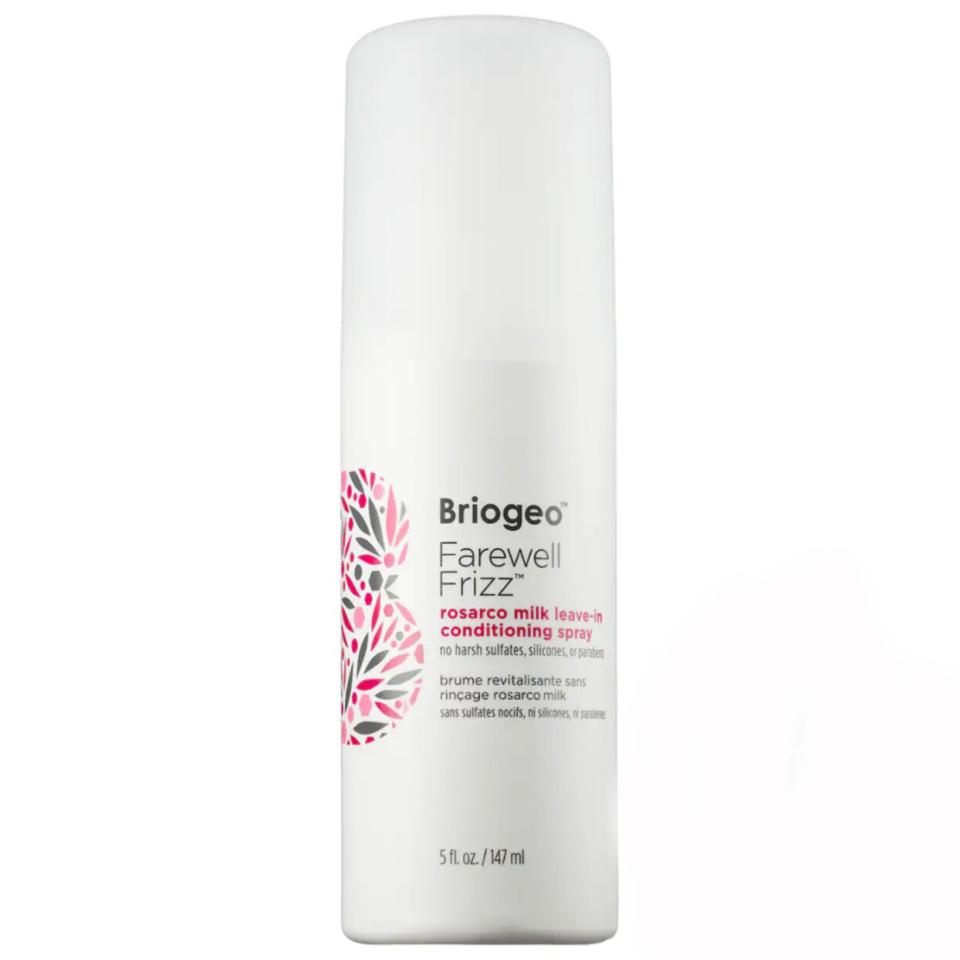Are Silicones Actually Bad for Your Hair?

We Are/Getty Images
As the hair-care industry evolves — thanks, science! — you learn more about what's safe to slather on your head and what you probably shouldn't be inhaling. That said, there are also ingredients hiding in plain sight on shampoo and conditioner labels that, while not necessarily toxic, get a bad rap for having a negative impact on hair health. Sulfates are a major player in the "not poisonous, but also a disaster for certain hair types," game. Another frequent offender? Silicones.
Over the past several years, "silicone-free" has been appearing more and more on labels, especially on products for curly-haired folks (like myself). While silicones aren't great for most hair types, they're also not a toxic chemical that's going to ruin your hair forever. In fact, silicones can be useful, according to experts. You just need to know what silicones are, how they work, which (if any) are right for you, and which are water-soluble (this is actually a pretty big deal). Below, everything you've ever wanted to know about silicone in hair products and which silicones actually work.
What Is Silicone?
Silicone is a polymer, a plastic-like material that can be in liquid or solid form and often functions as an emollient, says Tonya Lane, cosmetic chemist and founder of CurlyChemistry. Emollients work as lubricators and also seal in moisture. (Case in point: Silicone lubes are a popular personal lubricant choice — as are silicone sex toys.)
In hair care products, the function of silicone is "to help smooth the cuticle [the outermost layer of hair] to decrease tangles, impart shine, prevent heat damage, and provide a beneficial film around the cuticle that can lock in moisture to reduce dryness," says Lane. These are all great attributes to have in a hair-care ingredient — so far, so good — but there are actually two different types of silicone, and that's where things get tricky.
Water Soluble vs. Non-Water Soluble Silicone
Silicones can be broken down into two categories.
Non-water soluble silicones are difficult to rinse off the hair shaft, explains Christin Brown, celebrity stylist and Olaplex ambassador. "This makes it difficult for conditioners to provide hydration to the hair, making the hair more dehydrated." They can also cause buildup. You may see them on a label as:
Dimethicone
Cyclomethicone
Amodimethicone
Pheryl Trimethicone
Ceteraryl Methicone
Dimethiconol
Stearyl Dimethicone
Water-soluble silicones can be easily rinsed out of hair and won't cause buildup or dullness over time. Basically, they provide the benefits of silicone without the negative side effects. Here's a quick list of water-soluble silicones:
Dimethicone Copolyol
Lauryl Methicone Copolyol
PEG-8 Dimethicone
PEG-12 Dimethicone
Dimethicone PEG-8 Succinate
Amodimethicone
A good rule of thumb is that most ingredients ending in "-cone" are non-water soluble silicones while ingredients containing the prefix PEG are usually water-soluble silicones, says Laura Sagen, founder of The Hair Fuel. "PEG stands for polyethylene glycol, a chemical compound that 'clamps' onto water molecules, making them soluble," she says. There are also some silicones called volatile silicones that, while not water-soluble, do evaporate off the hair. "This prevents any buildup or blockage for nutrients to penetrate," explains Lane.
So Are All Silicones Bad for Your Hair?
As a proud owner of a head of curls, I've spent years avoiding silicones like the plague without having a great idea of why. I just knew that when I used a hair product containing silicone, my hair, while looking briefly shiny and gorgeous, took a turn for the worst after a few days and seemed impossible to hydrate. Based on this expert intel, I realize I was probably using non-water soluble silicones and using them at the wrong stage in my hair-care routine because, yep, when you use silicones is also a factor in whether or not they're good or bad for your hair.
While silicones get put on blast for locking out moisture and nutrients from the hair cuticle, that's only a bad thing if you're using products meant to penetrate the hair cuticle after applying a product with silicone in it. "Ideally, a product with silicone like a styling oil should be the final step after nutrients are applied," shares Lane. So, for example, using a water-soluble silicone as a final ingredient in your hair care routine such as during heat styling or in a finishing spray or mist isn't a bad idea at all. But before a conditioner or another styling product like a curl cream? Not so much.
And while it's certainly a problem when silicone acts as a shield against all the moisturizing and nutrient-rich goodness your hair would otherwise be absorbing like a sponge, a bigger problem with silicone is the potential for buildup. Silicone can build up on your hair over time since it's difficult to rinse off — and then any product you use on top of those silicones will just sit there and accumulate as well since it's can't penetrate the hair. "Unfortunately, a lot of what we think penetrates the hair cuticle in fact does not," explains Lane. Buildup weighs down all hair types, makes hair look dull and/or greasy, and can even cause breakage over time. This is only a problem with those non-water soluble silicones, so whenever possible, look for water-soluble silicones that won't leave you with buildup.
Are There Any Silicone Alternatives?
If you've weighed the pros and cons of using silicone-based hair products and decided they're not for you, there are alternatives. "The easiest two would be tocopherol (aka vitamin E) and argan oil," shares Sagen. Additionally, hydrolyzed wheat protein is an ingredient whose molecules are small enough to penetrate the hair shaft and then stay there, filling in the gaps in the hair shaft and cuticle, thus improving the slip and creating the smoothing effect associated with silicones, says Sagen.
Other ingredients that function as emollients include vegetable-derived oils such as olive, sunflower, and avocado, according to Lane, whose list of silicone alternatives also includes coco-caprylate (an ingredient naturally derived from coconut oil), capryloyl glycerin, and hydrogenated ethylhexyl olivate.
When Is It a Good Idea to Use Silicones?
While experts recommend steering clear of silicones in shampoos and conditioners, they can be useful as a final styling product and are definitely not a bad idea to use as a heat protectant when straightening, curling, or blow-drying hair.
But "in most cases, curly folks want to stay away clear of all silicones, though some will follow a modified approach and use water-soluble silicones that rinse easily from the hair," says Brown. Since curls are structurally fragile, the buildup can cause breakage as well as curl pattern disruption and extra frizz. It can also make curls appear dry and lifeless. Interestingly, silicone is found in a lot of products made specifically for curly hair because curls are prone to all the things silicones are designed to combat: coarseness and tangling. (Related: What to Know About Low- and High-Porosity Hair)
Read on for a few favorite hair products that feature silicones — water-soluble, of course — as well as some silicone-free favorites.
Best Water-Soluble Silicone Hair Oil: Olaplex No. 7 Bonding Oil
This restorative oil can be used daily on wet or dry hair, but it really shines (no pun intended, but it does make hair super lustrous according to customer reviews) as a heat protectant. Thanks to a water-soluble variant of dimethicone, this oil rinses easily from the hair for cleansing and conditioning, but also functions as a heat protectant up to 450ºF. "This is the one oil I can use on all hair types, including curls, and achieve amazing results without the guilt," shares Brown. (Related: How to Find the Best Oil for Your Hair Type)
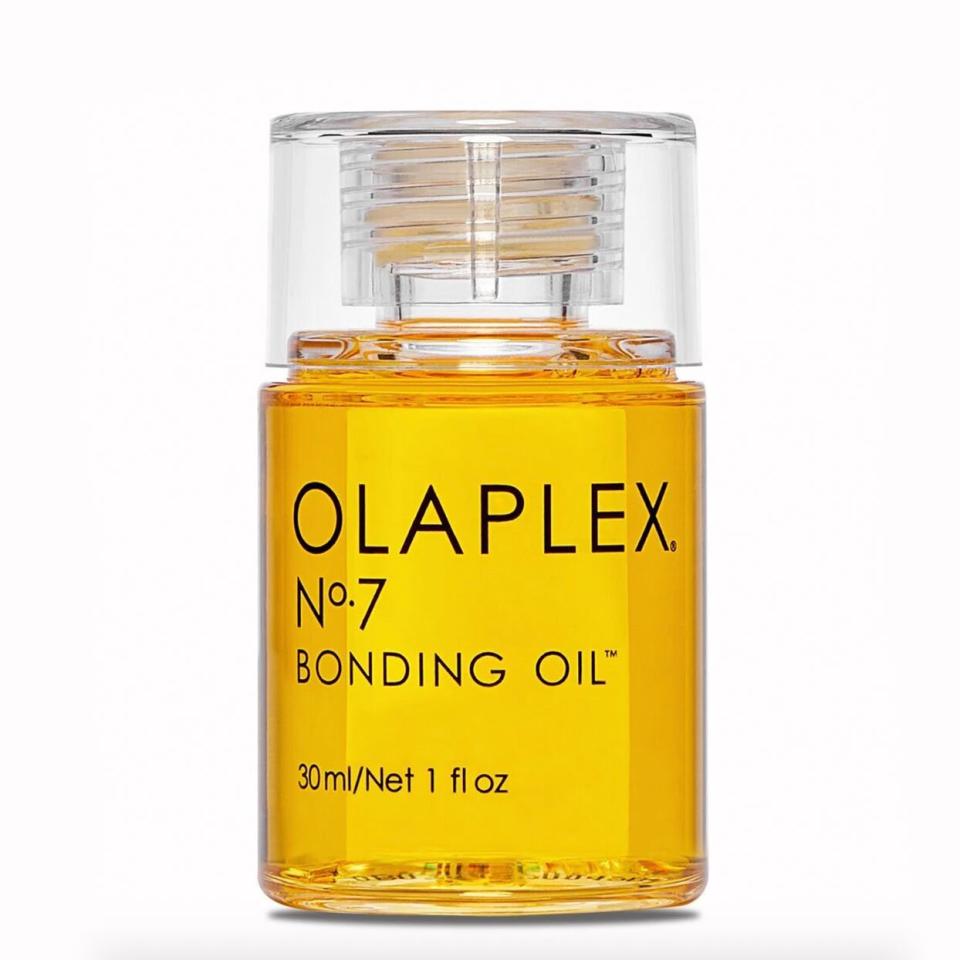
Best Silicone-Free Hair Oil: Bread Beauty Supply Hair Oil Everyday Gloss
Instead of using silicones, this hair oil — which smells better than any other oil I have ever put on my hair — instead seals in moisture and adds shine thanks to safflower and argan oils. It absorbs effortlessly into curls and doesn't create a greasy film or residue. Because it's so light, you might find yourself wanting to overapply, but trust me (and all the reviewers responsible for its four out of five-star rating and 3,5000 loves on Sephora's site), once your hair dries, you'll see a huge difference.
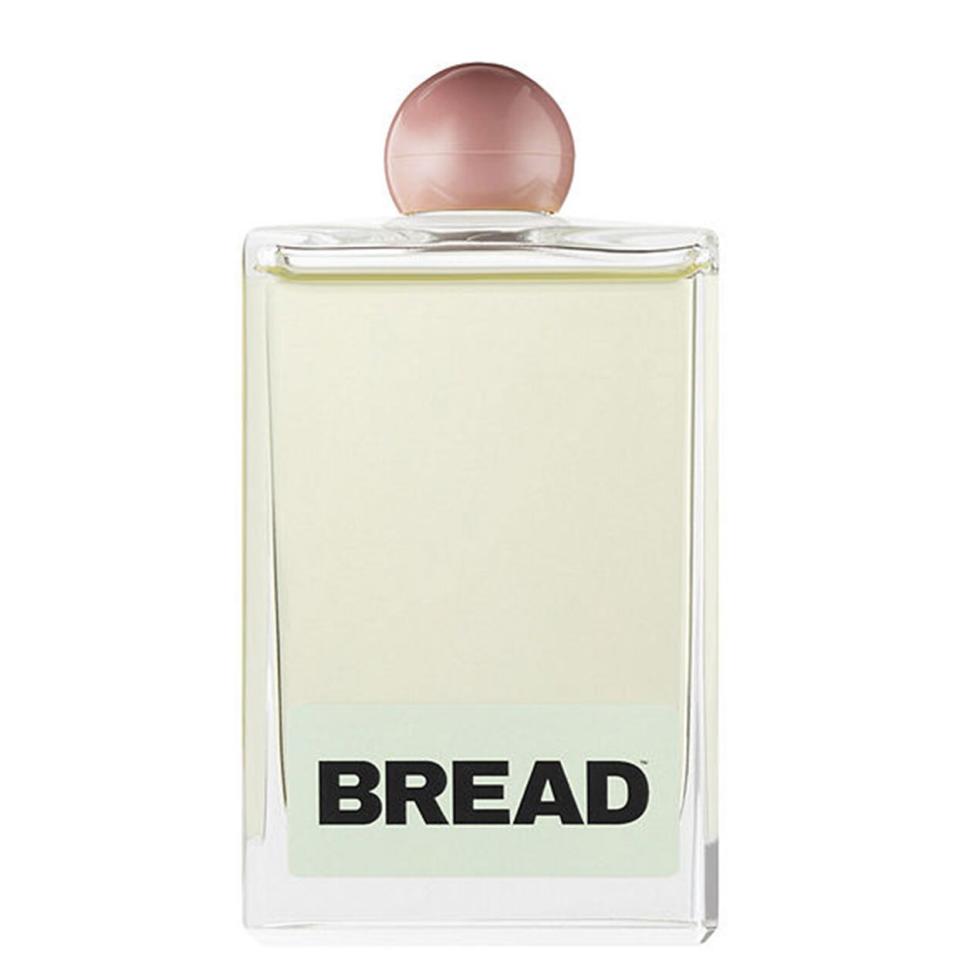
Best Water-Soluble Silicone Hair Mask: OUAI Treatment Hair Mask
Hair masks are one of the biggest culprits when it comes to silicones as many of them contain dimethicone. (Seriously, spend some time reading ingredients lists online. It's a trip.) That's most likely because you expect our hair to feel incredibly smooth and soft after a mask and including silicone is a great way to achieve that feel. Still, there are hair masks that feature water-soluble silicone instead of the buildup-heavy kind, and this mask from OUAI is one of them. What makes it effective is the blend of a water-soluble silicone — amodimethicone — alongside tamarind seed and artichoke leaf extract which both deeply hydrate as well create a protective layer over the hair shaft to prevent damage.
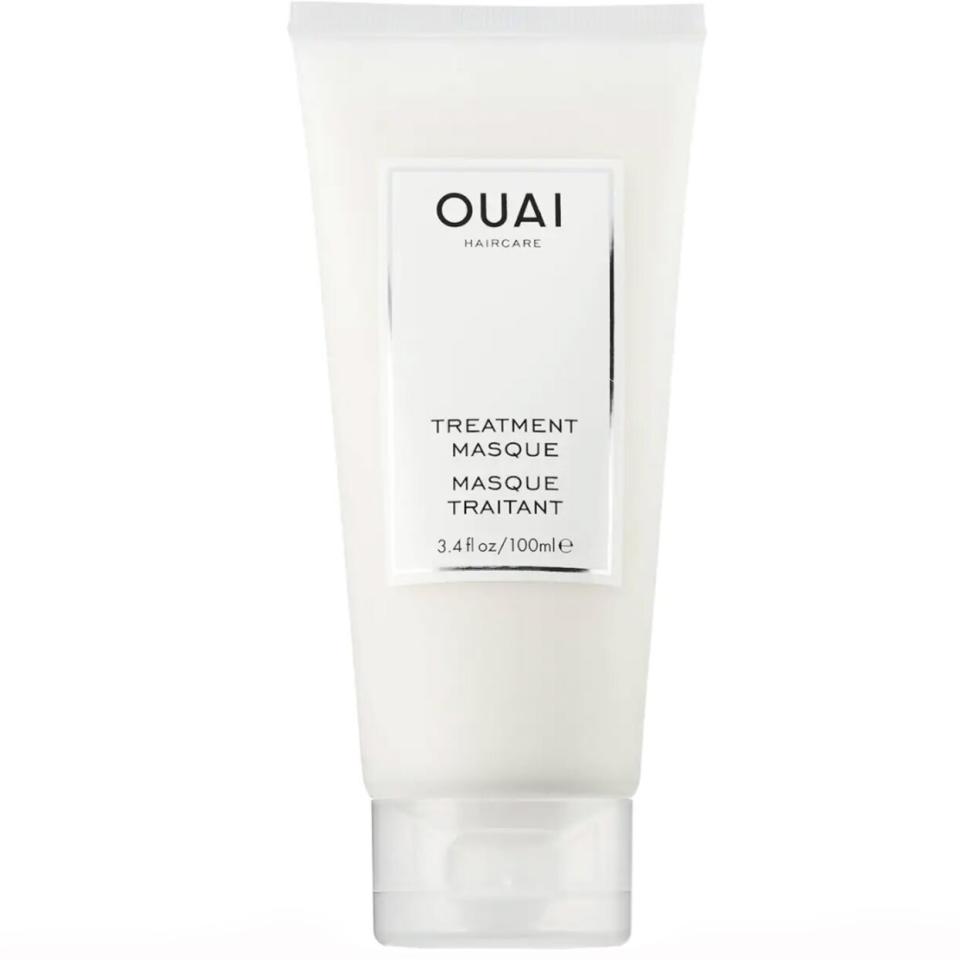
Best Silicone-Free Hair Mask: Christophe Robin Regenerating Hair Mask with Prickly Pear Seed Oil
I find myself returning to this mask again and again, mainly because a little bit goes a long way, even with thick or coarse hair. At the same time, it isn't overpowering on finer hair — which is both a good and a bad thing if you share a bathroom with someone whose hair type differs from yours and they help themselves to your fancy products. The slippery smooth feeling from this mask is brought to you courtesy of prickly pear seed oil which is basically argan oil on steroids. It delivers the same silicone-alternative smoothness and shine, but with higher antioxidant levels than argan oil which makes it incredibly effective.
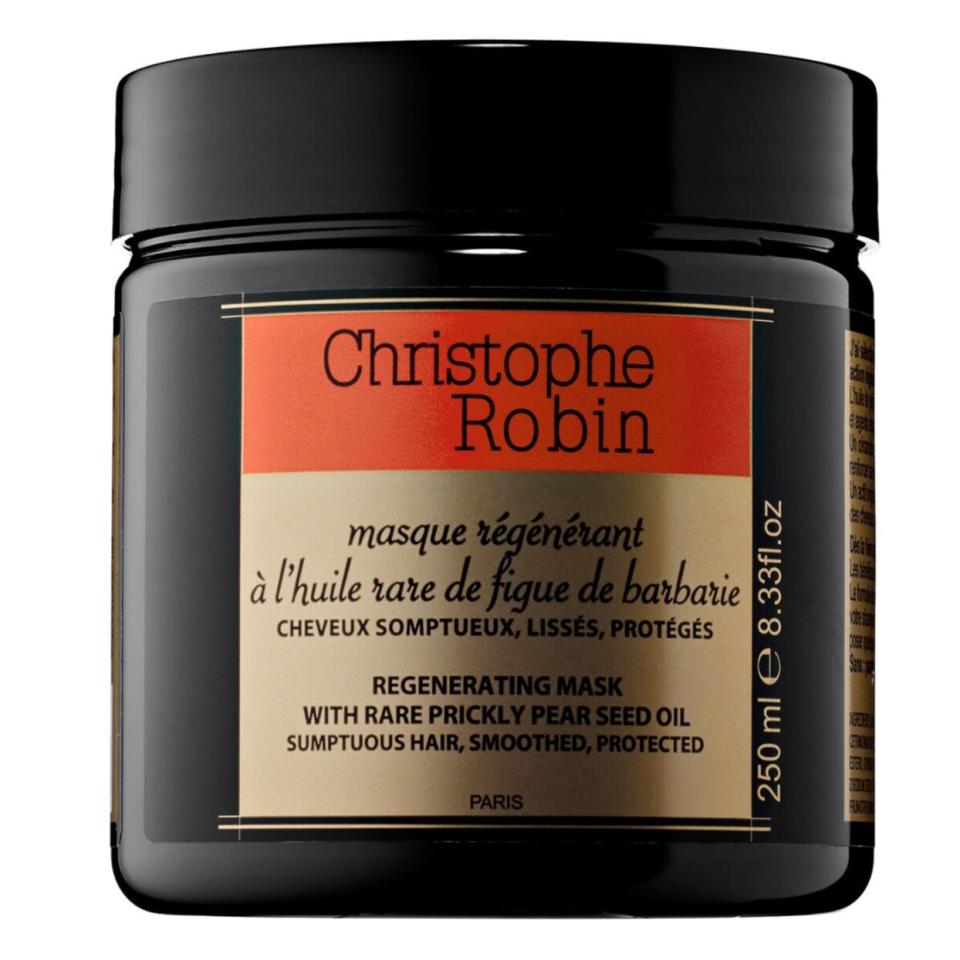
Best Water-Soluble Silicone Leave-In Conditioner: VERB Leave-In Conditioning Mist
You're most likely to find silicones in two hair product categories: those meant to smooth, detangle, and soften your hair and those meant to finish off a hairstyle or look such as finishing sprays and heat protectants. Since leave-in conditioners are both a smoothing and a styling product, they're also usually major culprits for containing "bad" silicones. That's where lifesavers like Verb's leave-in conditioner come in. It's formulated with argan and moringa seed oil to smooth hair and reduce frizz and flyaways as well as amodimethicone, a water-soluble silicone. Basically, it's smoothing and shine-boosting goodness comes from both silicones and naturally derived ingredients.
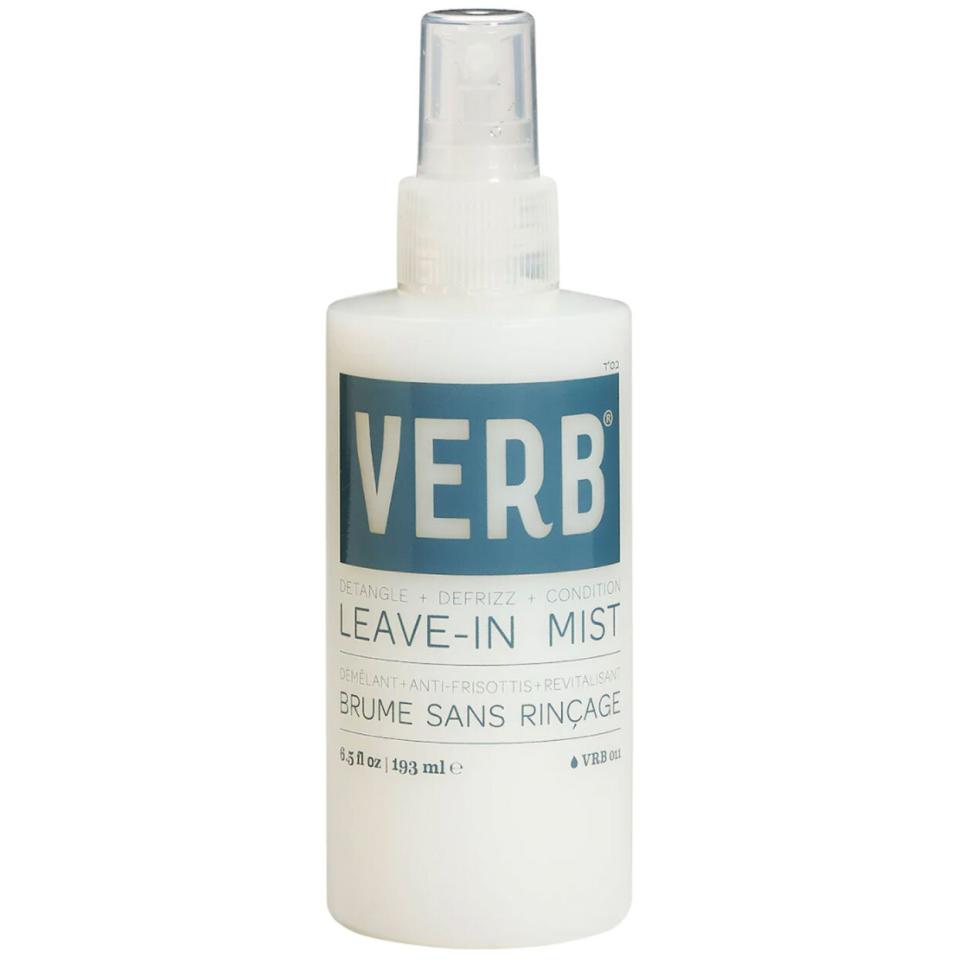
Best Silicone-Free Leave-In Conditioner: Biogeo Farewell Frizz Roscaro Milk Leave-In Conditioner
With over 77,000 loves on Sephora's website, this leave-in conditioner from curly cult favorite Brigeo works on all hair textures to smooth the hair cuticle, seal in hydration, and seal out frizz. Briogeo as a brand is silicone-free and this leave-in conditioner is no exception, featuring silicone alternatives such as argan oil and coconut oil, as well as shea butter. These may sound like heavy ingredients, but this lightweight leave-in works on all hair types. (P.S. They also make a great shampoo for curly hair.)
